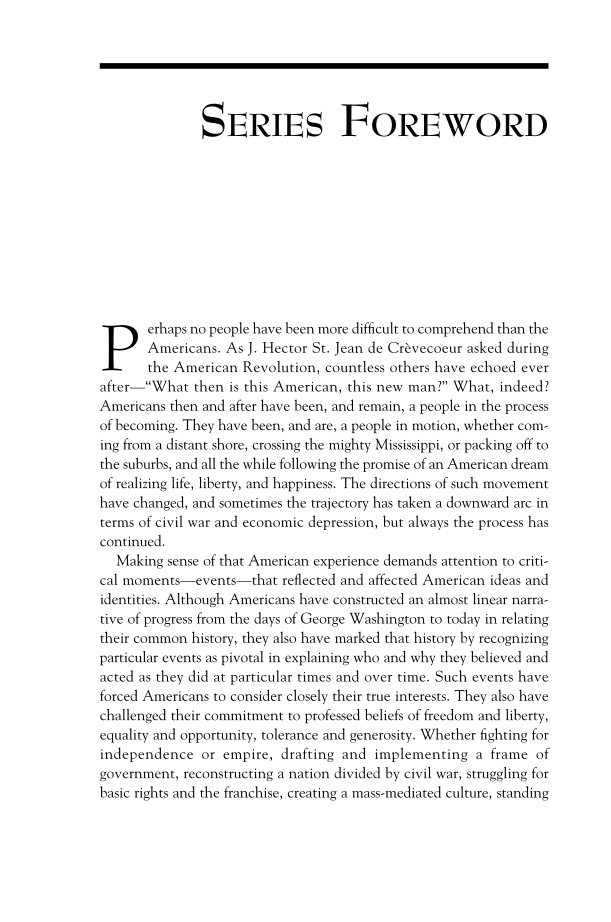SERIES FOREWORD P erhaps no people have been more difficult to comprehend than the Americans. As J. Hector St. Jean de Crèvecoeur asked during the American Revolution, countless others have echoed ever after—“What then is this American, this new man?” What, indeed? Americans then and after have been, and remain, a people in the process of becoming. They have been, and are, a people in motion, whether com- ing from a distant shore, crossing the mighty Mississippi, or packing off to the suburbs, and all the while following the promise of an American dream of realizing life, liberty, and happiness. The directions of such movement have changed, and sometimes the trajectory has taken a downward arc in terms of civil war and economic depression, but always the process has continued. Making sense of that American experience demands attention to criti- cal moments—events—that reflected and affected American ideas and identities. Although Americans have constructed an almost linear narra- tive of progress from the days of George Washington to today in relating their common history, they also have marked that history by recognizing particular events as pivotal in explaining who and why they believed and acted as they did at particular times and over time. Such events have forced Americans to consider closely their true interests. They also have challenged their commitment to professed beliefs of freedom and liberty, equality and opportunity, tolerance and generosity. Whether fighting for independence or empire, drafting and implementing a frame of government, reconstructing a nation divided by civil war, struggling for basic rights and the franchise, creating a mass-mediated culture, standing
Document Details My Account Print multiple pages
Print
You have printed 0 times in the last 24 hours.
Your print count will reset on at .
You may print 0 more time(s) before then.
You may print a maximum of 0 pages at a time.

























































































































































































































































































































































